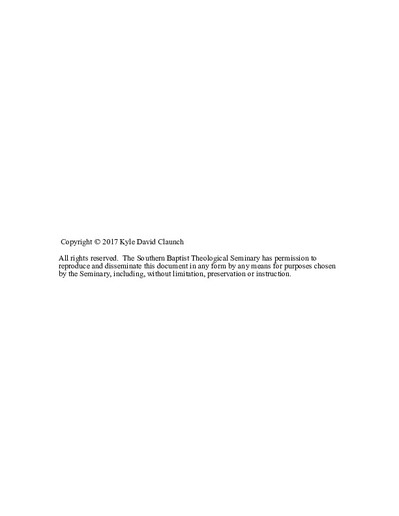The Son and the Spirit: The Promise of Spirit Christology in Traditional Trinitarian and Christological Perspective
Subject
Spirit christologyAbstract
This dissertation evaluates various contemporary Spirit-Christology proposals. Herein, Spirit Christology is defined as an approach to Christology that affords paradigmatic prominence to the Holy Spirit for understanding traditional Christological categories. Contemporary Spirit-Christology proposals occur along a spectrum of faithfulness to Nicene Trinitarianism and Chalcedonian Christology. While modifications to traditional formulae (implicit or explicit) are commonplace in contemporary proposals of Spirit Christology, it is the thesis of this dissertation that such modifications are neither helpful nor necessary. Rather, Spirit Christology can and should offer a pneumatological enrichment of traditional Christology and a boon to Christian devotion. Such a model will not move Christians away from the traditional Christocentric soteriological impulse of the Christian tradition (as is the case with some proposals) but will rather affirm the strength and necessity of that impulse.
As an introduction, chapter 1 establishes the significance of this dissertation. Chapter 2 is a survey of the contemporary Spirit-Christology proposals that are furthest removed from the Trinitarian and Christological heritage of orthodoxy. These revisionist Spirit Christologies do not represent an advance in Christian doctrinal formation but a return to the early Christological heresy of adoptionism, which was soundly and rightly rejected by the church.
Chapter 3 is a survey of proposals that purport to be developed within the tried Trinitarian and Christological heritage of the church. These Trinitarian Spirit Christologies, however, often raise serious questions concerning the consistency of the proposals with traditional categories. This chapter also identifies a list of advantages to Spirit Christology that are to be commended and a list of inherent dangers that must carefully be avoided.
Chapters 4 and 5 seek to advance the discussion of Spirit Christology. Chapter 4 advances the discussion by means of retrieval, examining the Spirit Christology of John Owen as an example of a proposal that achieves the advantages and avoids the dangers of this approach. Chapter 5 advances the discussion by way of a constructive proposal of an “Owenite” Spirit Christology in conversation with contemporary Spirit-Christology proponents and its detractors.

